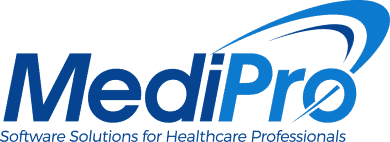
Survey analyzes how practices adjust their operations as patients have more choices for care, including improving wait times, office hours, appointment scheduling, financial management, and patient portals
New Medical Group Management Association (MGMA) (@MGMA) data find that medical practices focus on patient experience and access as patients face more options in how their care is delivered. The first-of-its-kind Practice Operations Survey analyzes a range of important benchmarking data that’s never been available before, including patient portals usage, wait times, call volumes, hours of operation, appointment length, scheduling and other nuts and bolts of running a medical practice.
“From what time the doors open to how long a patient waits in an exam room, operations affect a practice’s bottom line as well as its ability to deliver quality care to patients,” said Dr. Halee Fischer-Wright, MD, MMM, FAAP, CMPE, President and CEO of the Medical Group Management Association. “As patients increasingly have more options for receiving care, it’s essential for practices to have benchmarking data to identify tactics that best improve patients’ experiences.”
The survey shows that practices concentrate efforts on gathering information about their patients’ experiences to guide improvement of operations. The data found that 85 percent of practices conduct patient satisfaction surveys, and of those, more than 70 percent conduct them at least monthly if not more frequently.
Many of the operations metrics in the new survey focus on patient access. For example, of all responding practices, the MGMA data show that 61 percent of practices have taken action to improve wait times. Practices report median wait times between 10 and 15 minutes for time spent in the waiting area.
These findings further underscore the results of an MGMA Stat poll – a real-time, text-based polling initiative – from April of more than 100 health professionals finding that more than 80 percent of the respondent practices changed or were in the process of changing processes to improve patient access.
The data show that few practices report having extended hours on the weekends – 26 percent are open to patients on Saturdays and 11 percent on Sundays. Of those practices that are open on the weekends, nearly all are either primary care or multispecialty practices with just a handful of surgical specialty practices. Additional patient access measures in the data include wait for a scheduled appointment, call volumes and responsiveness, length of appointment times, number of appointment slots per day and percentage of same-day appointments.
Patient portals also show variations: Practices report that patients utilize online portals most for accessing test results, regardless of specialty: generally more than 10 percent. Primary care practices also report a higher percentage use of patient portals for communication with providers and medical staff compared to other specialties.
The MGMA data also look at management aspects of operations, including frequency of collecting patient balances at time of service, establishing and monitoring an annual budget, limiting patient no-shows, managing employee turnover and satisfaction, and improving billing functions.
The survey found that nearly 25 percent of medical practices do not create an annual budget. Of the three quarters of practices that do create an annual budget, the vast majority compare their year-to-date status relative to their budget on a monthly basis.
“An annual budget is critical to every practice’s preparations for the upcoming year as it projects the revenue that will be available to support practice activities, defines future staffing levels, and most importantly forecasts the bottom line for the practice and its owners a year in the future,” said David Gans, FACMPE, MGMA senior fellow industry affairs. “Despite the value of having a tool to manage ongoing activities and minimize the impact of unfavorable conditions, these data confirm what we’ve observed, that many practices across the country don’t understand the value they can derive from preparing an annual budget. That’s why MGMA provides guidance how to create a budget that is tailored to a practice’s needs and the best ways to use it to bring actuals in line with projections.”
The Practice Operations report is based on information provided by 791 practices across the country and is available to purchase here.
SOURCE: RCM Answers | 11/7/16
- 1.800.759.1321
- Atlanta, GA & Phoenix, AZ
- [email protected]
